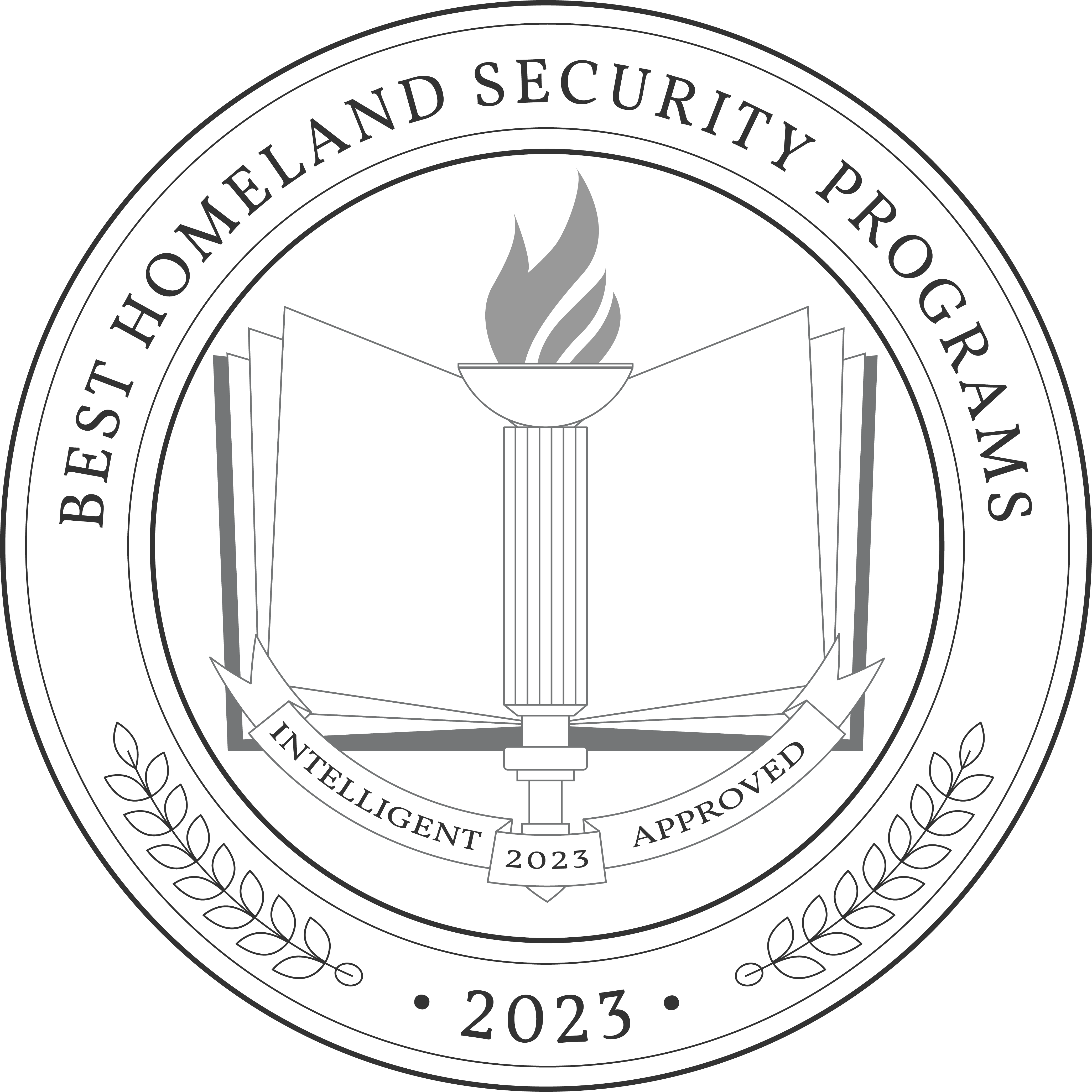Why This Matters
-
DEMAND FOR EMERGENCY MANAGEMENT DIRECTORS EXPECTED TO INCREASE BY 4%
The need for skilled leaders in risk, crisis, and emergency management is expected to continue over the next decade, growing at the same rate as all other U.S. occupations.
-
EMERGENCY MANAGEMENT DIRECTORS MAKE $74,590 PER YEAR
With a median hourly salary of $35.86 per hour, emergency management directors make $34,780 more than the median annual salary for all other occupations.
-
DEMAND FOR CYBERSECURITY ANALYSTS EXPECTED TO INCREASE BY 31%
Cybersecurity will remain a pressing issue over the next decade, and governmental agencies will rely on analysts to predict, prevent, and minimize the damage from hackers around the world.
Our Research
This list covers undergraduate, graduate, and doctorate programs that prepare students for careers in homeland security. Degrees offered include Bachelor of Arts in Criminal Justice, Bachelor of Science in Emergency Management, Bachelor of Science in Corporate and Homeland Security, Master of Arts in Criminal Justice, and Master of Science In Homeland Security. Students can choose between online, on-campus, and blended learning formats.
National and regional accreditation is given to homeland security degree programs that meet specific academic criteria. The programs on our list are nationally accredited by the Higher Learning Commission (HLC). Schools are also accredited by the Southern Association of Colleges and Schools Commission on Colleges (SACSCOC), the Northwest Commission on Colleges and Universities (NCCU), the Middle States Commission on Higher Education (MSCHE), and the WASC Senior College and University Commission (WSCUC).
We evaluated each program on the basis of flexibility, faculty, course strength, cost, and reputation. Then we calculated the Intelligent Score for each program on a scale from 0 to 100. For a more extensive explanation, check out Our Ranking Methodology.
- 66 hours to write this article
- 153 universities and colleges we assessed
- 228 education programs we compared
The Top 50 Homeland Security Degree Programs

Discover More Options
What You Should Know About This Degree
When choosing a career path in national security, you should also consider a degree in criminal justice. Criminal justice is the comprehensive study of law enforcement and public safety. Homeland security deals specifically with securing and protecting infrastructure and civilians against international and domestic threats. If you’re sure you want to pursue job occupations in governmental agencies, you should consider a degree in homeland security. If you want to receive a broader education regarding the administration of justice and the different stages of law enforcement, then you should consider pursuing a degree in criminal justice.
Certifications in homeland security can demonstrate your expertise to potential employers while also helping you to gain specialization in specific areas of homeland security that interest you. The American Board for Certification in Homeland Security distributes two different certifications to professionals: NSA/GSHNSP Certified Homeland Protection Associate – level I-IV (CHPA), and Certified Homeland Protection Professional (CHPP). Graduates interested in cybersecurity should also consider pursuing IT certifications such as the Certified Ethical Hacker and Certified Information Security Manager (CISM).
The job outlook for homeland security professionals is determined by state and local budgets and is consistent with the projected growth rate for all other occupations. Experienced emergency management directors and cybersecurity analysts are expected to have the most positive job prospects over the next decade.
What’s Next?
Ask yourself these questions when researching degree programs in homeland security:
- Am I eligible for this program? Students from all educational backgrounds with a high school diploma or GED can pursue a bachelor’s degree in homeland security. Master’s degree programs require a bachelor’s degree in a relevant field. Some graduate programs may require a minimum GPA and professional work experience.
- How long does it take to complete this online degree? Most bachelor’s programs require four years of full-time study to complete. Master’s programs in homeland security require two years of full-time study. Students must complete a minimum of 90 credits to graduate from the bachelor’s programs on this list.
Application requirements and deadlines vary for each program. Contact the school’s admissions department or visit the school’s website for more detailed information about the program to which you are applying.
Consider how you will cover the costs of your higher education. You may be eligible for scholarships, grants, and work-study programs. Make sure to turn in all financial aid applications on time.